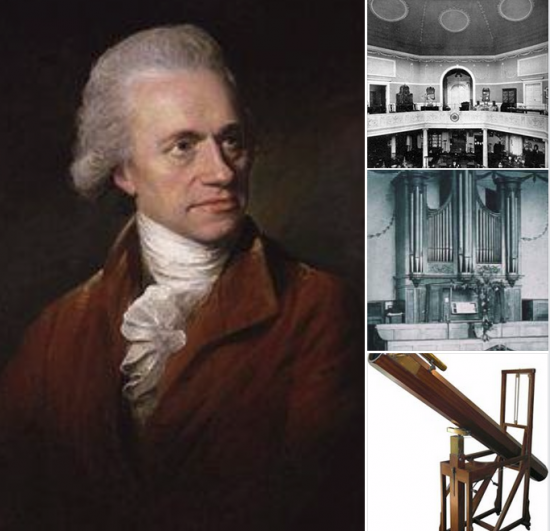Musicians’ Musings
In looking back at the art of past centuries today, we all know who the most worthy composers were, right? Names such as Mozart and Beethoven always float to the surface.
 On our Stars in Their Eyes concerts on May 2 & 4, we introduce audiences to musician-scientists of the 18th-century who were impacting both fields. One of the most intriguing of these musicians -scientists was William Herschel (1738-1822), who is considered to be the “father of modern astronomy.“ Herschel’s first career was as a musician —he was an oboist, violinist, harpsichordist, organist, and composer.
On our Stars in Their Eyes concerts on May 2 & 4, we introduce audiences to musician-scientists of the 18th-century who were impacting both fields. One of the most intriguing of these musicians -scientists was William Herschel (1738-1822), who is considered to be the “father of modern astronomy.“ Herschel’s first career was as a musician —he was an oboist, violinist, harpsichordist, organist, and composer.
 Earth’s miraculous serendipity of a cooperative and perfectly distanced sun, a magnetic field, generous availability of water, and a moon that stabilizes earth’s wobble has given us the gift of habitat and life - for humans and an incredibly diverse plant and animal world, all intertwined and surviving in delicate, fragile balance. As gardeners, foragers, and birdwatchers, we are in reverent awe of the rhythms, pulsing, and songs of our planet.
Earth’s miraculous serendipity of a cooperative and perfectly distanced sun, a magnetic field, generous availability of water, and a moon that stabilizes earth’s wobble has given us the gift of habitat and life - for humans and an incredibly diverse plant and animal world, all intertwined and surviving in delicate, fragile balance. As gardeners, foragers, and birdwatchers, we are in reverent awe of the rhythms, pulsing, and songs of our planet.
By Sarah Darling
How do we choose to interact with history every day?
It’s a question whose answers are many and nuanced, especially in a location like the Boston area. The past surrounds us in so many ways, large and small, that not being affected by it is not an option. What is very much an option is what we choose to do with its presence. Do we center it or treat it as a support? Do we attempt to re-create it,or do we attempt to enter into dialogue with it? Do we learn about it intellectually, or try to experience it with our own bodies?
